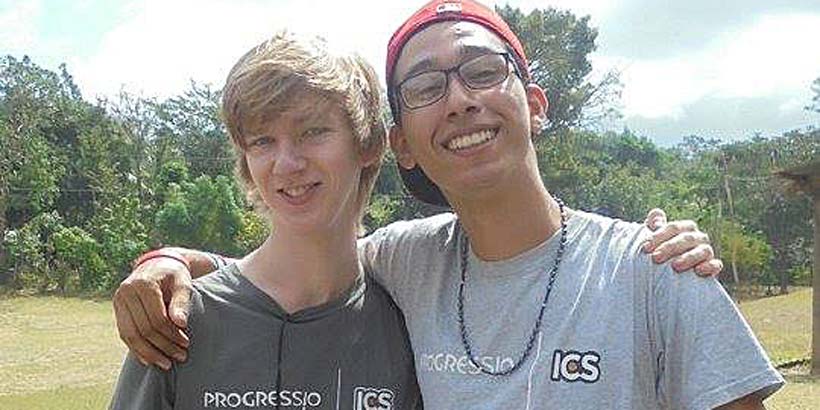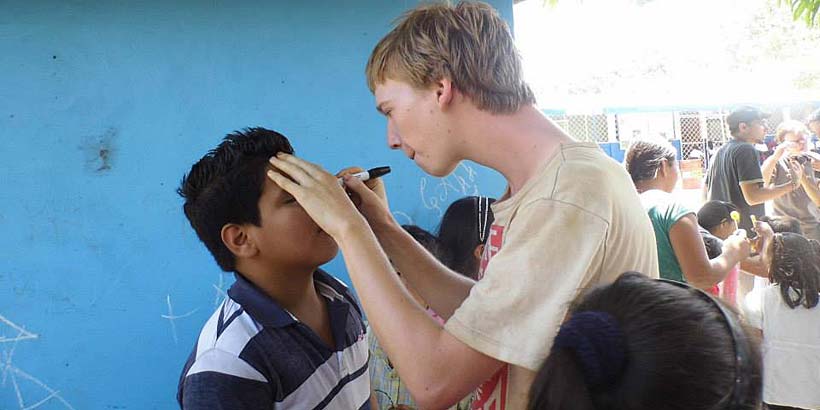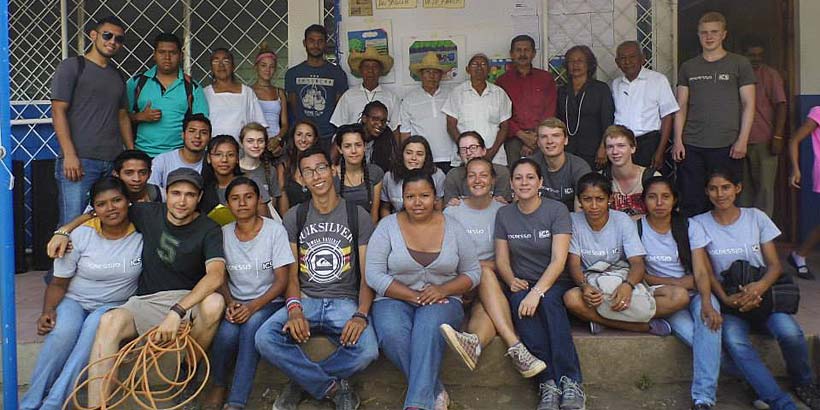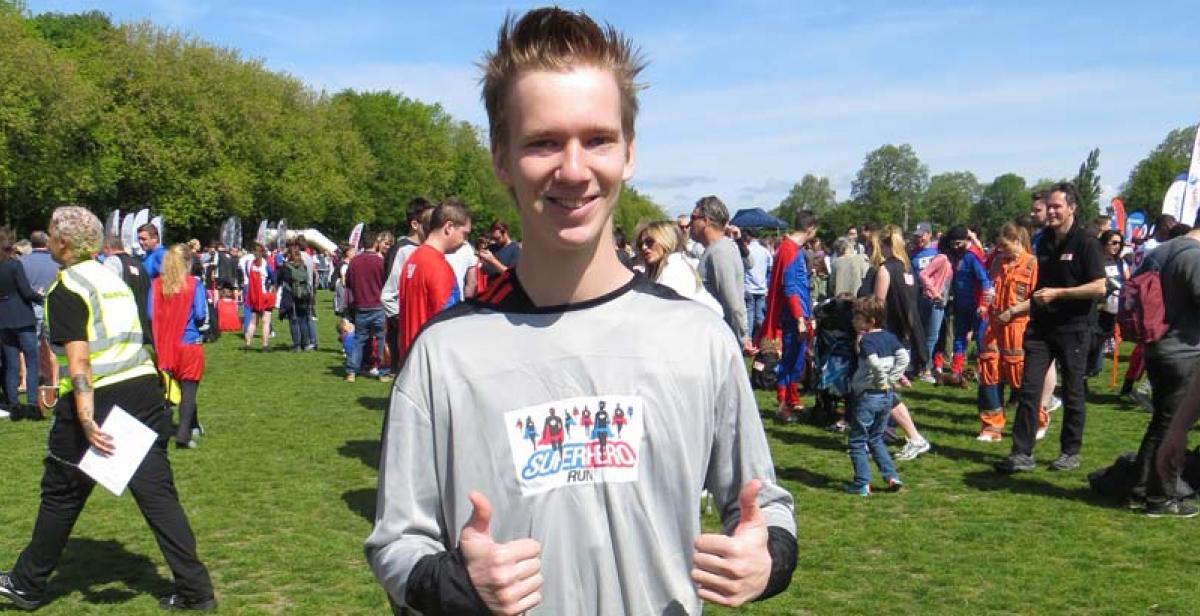The night is closing on my Progressio ICS experience. I flew out to Nicaragua; completed lots of projects; made many friends; came home; attended my cycle’s returned volunteer event; and have even gone some way to completing my action at home. As the hardened Progressio ICS veteran that I am, I shall impart some pearls of wisdom regarding that dogged first hurdle: fundraising. You have limited time, a fundraising officer breathing down your back, and a seemingly insurmountable amount of money to raise (£1500 in my case). This can seem a daunting task to many volunteers right at the beginning. However, it is important to remain positive, and make a strong start at the first part of what will be a life-changing experience.
First of all, when planning your fundraising, choose things you enjoy. I enjoy sports, specifically long-distance running, so I ran (and took sponsorship for) the Oxford Half-Marathon. I like food; so I held a Nicaraguan cuisine night (and didn’t do Live Below the Line). I don’t enjoy early mornings; so I gave that car boot sale a miss, but, if you’re an avid early bird and that suits you, by all means, go sell your trinkets and heirlooms- just don’t wake me (I actually ended up doing a car boot sale as part of my action at home, and I stand by this). The point is, having managed to get a place with Progressio, or any other ICS charity, you’re probably a talented person. Whether it be sports, baking, music, or even starving yourself, you can use what you enjoy to help you raise money. If you enjoy it, you’re more likely to plan it, do it, and, perhaps most importantly, remain enthusiastic about it. If you’re enthusiastic about what you’re doing, people are more likely to help you, and ‘help’ doesn’t just mean ‘donate’.

Don’t be afraid to call in favours or ask people for their support. A lot of the time, especially if you live in a more rural area, you can find that you are reaching out to the same people a lot. To get around this, I roped my sister into running the Oxford Half with me. This meant I had access to a whole new set of people (namely, my sister’s friends, colleagues, Facebook stalkers, etc.). She spread the word of what I was doing, and helped to raise much more than I would have on my own, meaning we were even, as she had made me delay my trip to Nicaragua just to go to her wedding. Don’t limit yourself to family; use any connection you have. My old Spanish tutor leads weekly salsa dance classes at the local pub, and was more than happy to give us a couple of mini-sessions at my Nicaraguan cuisine night. It didn’t seem like much at the time, but dinner and a dance is a vast improvement on just dinner; especially if the main meal is Gallo Pinto. Even if you opt for the car boot sale and find yourself unwilling to part with some/most of your treasures; ask around: someone you know has a garage they want clearing. It is a difficult enough task already, without going at it alone. Your fundraising is a good chance to interact with those around you, as well as your wider community.

Sports teams, choirs, schools, churches, pretty much anything that can double up as a social group, would be interested in what you’re doing; you just have to make contact with them. You can work with them on an event, do a presentation with them, or simply ask them to help spread the word. If you’re really lucky, they might give you a grant, which can help substantially towards any target. They will probably already have a regular audience that you can tap into, and, if they don’t, then they are your audience. If you’re aim is to help the poor of the world, or to build a sustainable future, you need to reach a wide range of people, and these community based groups rely on just the kind of network you need. Send emails, speak with members, and you would be unlucky not to find like-minded people who want to support you. You need to communicate your message to people and, though it can seem off-putting, in my experience you get what you put in.

Finally, the best thing you can do throughout your fundraising and, indeed, the rest of your placement, is to remain proactive. Keep thinking of how you can make things better. Of course, you’ll have your main, big-hitting events, as I did with my Nicaraguan cuisine night, but the more you do with it, the more successful your event will be. I started off with the idea of a night of Nicaraguan food. I added to that a mini-salsa class, a quiz, a presentation about where I was going and what I would be doing, various games and, something I would never truly understand until I actually went to Nicaragua, a piñata. It is hard to maintain the same level of enthusiasm throughout the whole programme, you just need a break sometimes, but I definitely found that I had a better experience the more active I was. Your flights, food, accommodation and preparation for your projects have been sorted; the rest is up to you.
Written by ICS returned volunteer Matthew McKenzie (Masaya, Nicaragua, Jan-March 2015)



